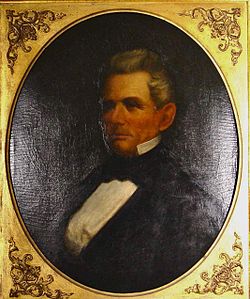| |||||||||||||||||
| Turnout | 9.40% | ||||||||||||||||
|---|---|---|---|---|---|---|---|---|---|---|---|---|---|---|---|---|---|
| |||||||||||||||||
 County results Moore: 50–60% 60–70% 70–80% 80–90% >90% Samford: 50–60% | |||||||||||||||||
| |||||||||||||||||
| Elections in Alabama |
|---|
 |
The 1859 Alabama gubernatorial election took place on August 1, 1859, in order to elect the governor of Alabama. Democrat Andrew B. Moore won his second term as governor.

